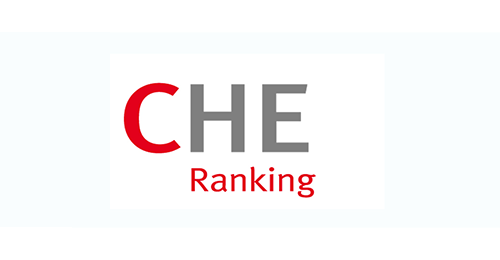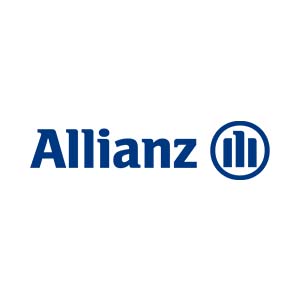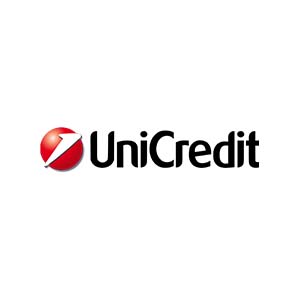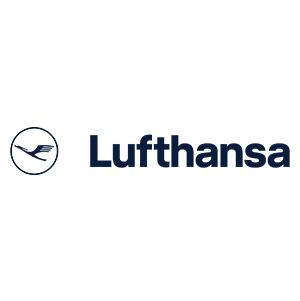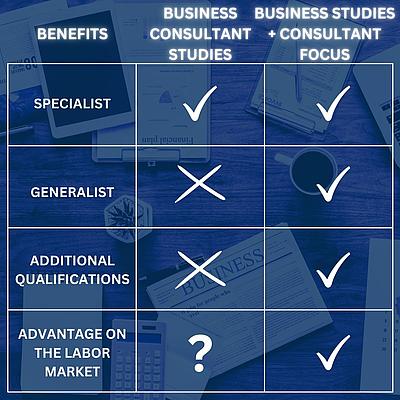A Business Studies degree with a focus on controlling offers a broader and more comprehensive apprenticeship that takes into account the versatility of business management contexts. Students who choose to study Business Studies not only gain specific expertise in the field of controlling, but also a solid foundation in other business disciplines. This holistic perspective enables graduates to be better able to understand the complex interactions between different business areas.
A Business Studies degree also offers the flexibility to prepare for different career paths. While a specialized controlling degree focuses on the specific techniques and methods of controlling, it may neglect the broader business aspects. A Business Studies degree with a Controlling focus enables students to succeed not only as Controlling specialists, but also in other areas of business management, such as Financial Management, Marketing or Human Resources.
In addition, the combination of Business Studies and Controlling provides a solid basis for management positions. Managers and executives in the corporate environment often need to have a comprehensive understanding of the overall business situation in order to make well-founded decisions. A Business Studies degree with a focus on controlling provides both the necessary technical knowledge in controlling as well as the strategic and analytical skills required for a successful management level.

